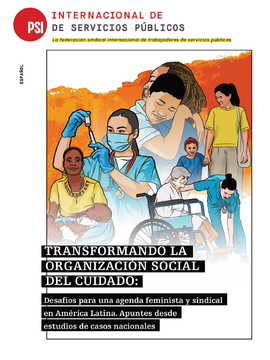
The Covid-19 pandemic has highlighted the urgency of deepening the debate about the social organization of care. In particular, the role of the State, public policies and the impacts of these polices on gender inequality are essential inputs.
The care agenda has been advanced in Latin America since the middle of the last decade, driven by regional women’s conferences, feminist activism, academic contributions, and working groups on gender in United Nations agencies.
Countries in the region are developing recovery plans in the wake of the worst of the COVID-19 crisis. The care agenda must be at the center of recovery strategies if they are to be transformative.
PSI – as part of our regional tax justice and gender project with the FES - has published the study "Transforming the social organization of care:Challenges for a feminist trade union agenda in Latina America. Notes on select national and local cases". It analyzes several national and subnational public care policies. Improvements and challenges for the feminist and trade union agendas in Latin America are highlighted.
The study was written by Corina Rodríguez Henríquez and Cecilia Fraga, from the Interdisciplinary Center for the Study of Public Policy (CIEPP). It includes an assessment of care policies implemented in Argentina, Costa Rica, Mexico, and the municipality of Bogotá (Colombia).